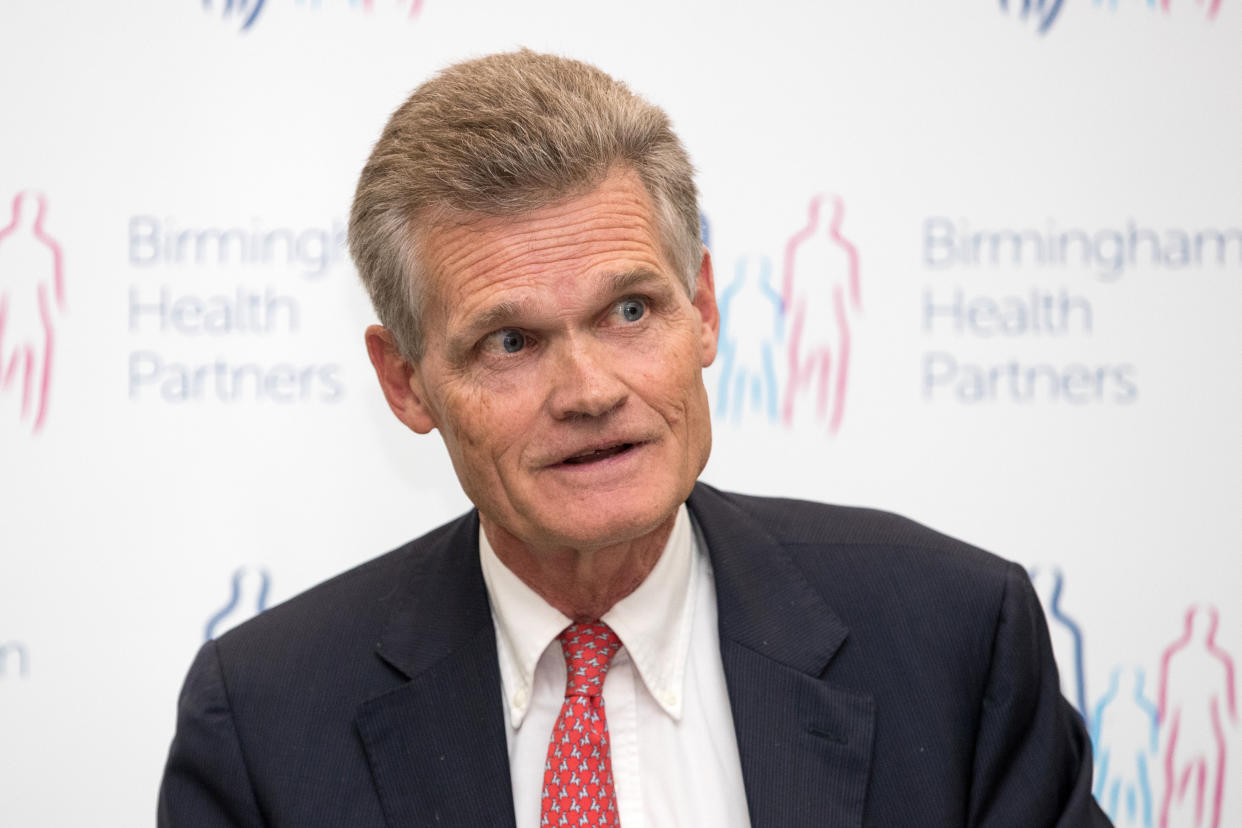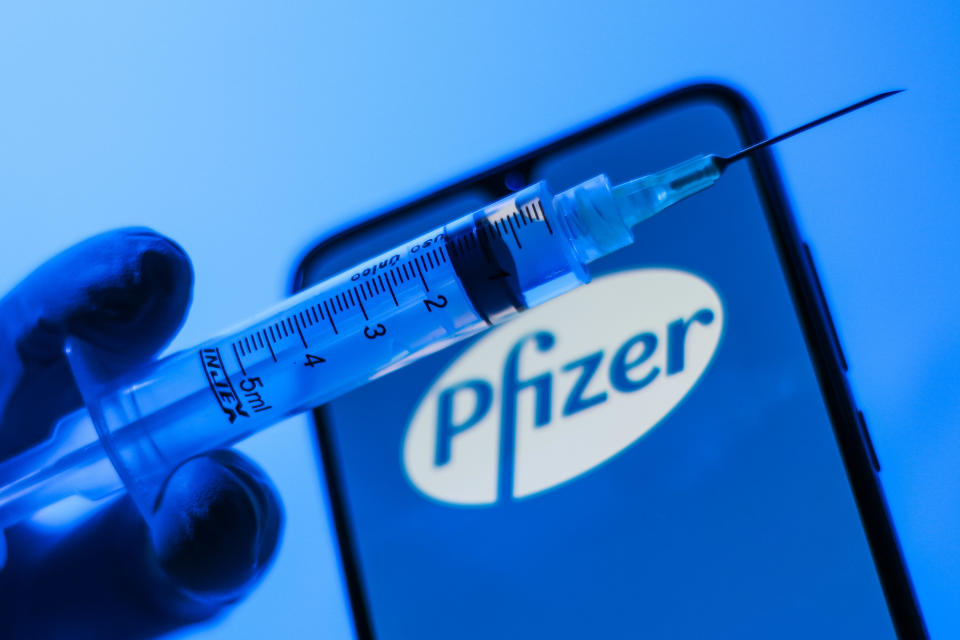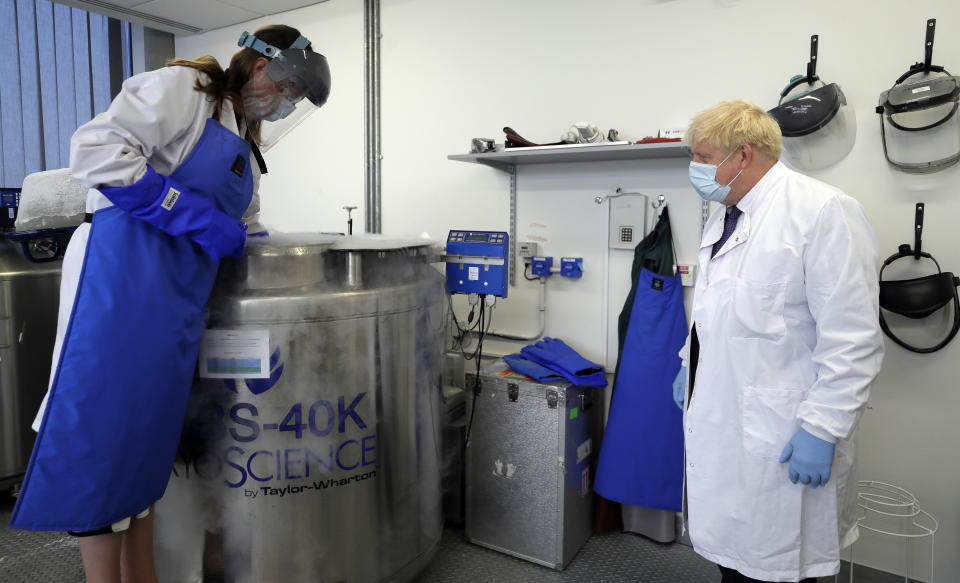Life to be back to normal by spring after COVID vaccine breakthrough, expert says

A leading vaccine expert has predicted life will be back to normal by spring after a major coronavirus vaccine breakthrough was announced by pharmaceutical giant Pfizer.
US giant Pfizer and German partner BioNTech said on Monday that their vaccine candidate had been more than 90% effective in preventing COVID-19 in a trial of over 43,000 participants.
Sir John Bell, regius professor of medicine at Oxford University and a member of the UK government’s vaccine taskforce, said the successful result paves the way for other vaccines to become available in the near future.
“I am really delighted with this result – it shows that you can make a vaccine against this little critter. Ninety per cent is an amazing level of efficacy,” he told BBC Radio 4’s The World at One.
“It rolls the pitch for other vaccines, because I can’t see any reason now why we shouldn’t have a handful of good vaccines.”
Asked if people could look forward to a return to normal life by spring, Bell replied: “Yes, yes, yes, yes. I am probably the first guy to say that but I will say that with some confidence.”

The pharmaceutical giant and its partner BioNTech said the vaccine had been tested on 43,500 people in six countries with no safety concerns raised and no serious side-effects reported.
Regulators have said they would approve a vaccine with just a 50% effectiveness rate – protecting half of those who get it.
The company is now applying for emergency permission to use the vaccine by the end of the month.
The vaccine must be stored at -70C, adding complexity to the task of distributing the vaccines.
If the vaccine becomes too warm for too long at any point along the supply chain, it may be rendered ineffective.
Read more: Sir John Bell: ‘I would be very surprised if we avoided the second wave’
Bell said: “There are many pathogens on which we tried for decades and never managed to get a vaccine – including malaria, HIV – vaccines which have proved to be almost impossible, but they’ve managed to break through with this with a very good result.
“There’s a few tweaks that need to be made. Distribution is going to challenging but I think we’ll solve those. That’s not the headline here.”
The new data has yet to be peer-reviewed or published in a medical journal. Pfizer said it would do so once it had results from the entire trial.
To save time, the companies began manufacturing the vaccine before they knew whether it would work. They now expect to produce up to 50m doses, or enough vaccine to protect 25m people, this year, and up to to 1.3bn doses in 2021.
Read more: Dominic Raab slams Russia over alleged coronavirus vaccine theft
Bell also said Oxford University and AstraZeneca’s vaccine is likely to be available soon, in “weeks, not months”, and that he’s optimistic that it will get a good result as well.
The UK has said not everyone will get a vaccine at once, with priority going to NHS workers and elderly people.
Watch: Professor hails Pfizer vaccine as 'tremendous news'
Other experts also welcomed Pfizer's news.
Professor Gordon Dougan of Cambridge University said he was absolutely delighted but noted that the vaccine's requirement to be kept at -70C will pose logistical problems for less wealthy countries.
Professor Fiona Watt, executive chair of the Medical Research Council, said:“This is very encouraging news – and provides grounds for optimism that other vaccines will also show benefits.
“What really strikes me though is the fantastic contribution of the many volunteers who have taken part in the trial, including over 40% from diverse backgrounds – without their altruism the trial could not have gone ahead.”
Read more: Third of Britons say they may not take coronavirus vaccine
Peter Horby, a professor of emerging infectious diseases and global health at Oxford University, said: “This news made me smile from ear to ear. It is a relief to see such positive results on this vaccine and bodes well for COVID-19 vaccines in general.

“Of course we need to see more detail and await the final results, and there is a long long way to go before vaccines will start to make a real difference, but this feels to me like a watershed moment.”
It comes ahead of news that Boris Johnson will hold a coronavirus press conference in Downing Street at 5pm on Monday.
He will be joined by deputy chief medical officer Professor Jonathan Van-Tam and Brigadier Joe Fossey, of the Royal Engineering Corps.
Watch: Exceptions to England’s national lockdown
Coronavirus: what happened today
Click here to sign up to the latest news and information with our daily Catch-up newsletter

 Yahoo News
Yahoo News 

